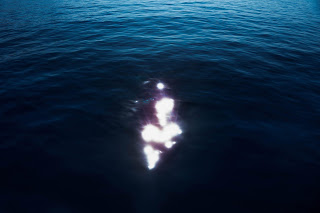A spread of films and talent presented at IFF Rotterdam's CineMart and backed by the Hubert Bals Fund are once again a fixture of the Cannes lineup in 2025. Catalan filmmaker Carla Simón brings her family trilogy to a close with Romería, a moving story of love, yearning and family anguish, this time through an adolescent lens as orphan Marina travels to meet her grandparents in Spain. Erige Sehiri's second feature Promised Sky focuses on a pastor whose home becomes a refuge for Naney, a young mother seeking a better future, and Jolie, a strong-willed student, before an orphan girl arrives and tests their solidarity.

Monday, 12 May 2025
Cannes Film Festival 2025: IFFR-Backed Selections
A spread of films and talent presented at IFF Rotterdam's CineMart and backed by the Hubert Bals Fund are once again a fixture of the Cannes lineup in 2025. Catalan filmmaker Carla Simón brings her family trilogy to a close with Romería, a moving story of love, yearning and family anguish, this time through an adolescent lens as orphan Marina travels to meet her grandparents in Spain. Erige Sehiri's second feature Promised Sky focuses on a pastor whose home becomes a refuge for Naney, a young mother seeking a better future, and Jolie, a strong-willed student, before an orphan girl arrives and tests their solidarity.
Thursday, 23 January 2025
After the Long Rains (Damien Hauser, 2024)
Tuesday, 17 December 2024
IFFR 2025: Competition Lineups Announced
IFF Rotterdam today revealed the lineup of films selected across the Tiger, Big Screen and Tiger Short competitions at the festival’s upcoming 54th edition. At the heart of the festival, the Tiger Competition showcases emerging voices from across the globe, with 14 world premieres exploring personal stories and profound connections to history, identity, and place—spanning Montenegro to Malaysia and Congo to India. The 14 titles in the Big Screen Competition bridge the gap between arthouse and popular cinema through genre-blurring stories of rebellion, tradition and expression, covering territories from Lithuania to Japan and the Netherlands to Argentina. The 20 titles in the Tiger Short Competition represent the most exciting and refreshing film art of today, featuring a Slovenian climate sci-fi, a re-appropriation of Myanmarese government broadcasts, and a Georgian photomontage.
Additionally, the first names in IFFR’s 2025 Talks lineup are also confirmed. Leading the programme are Cate Blanchett and Guy Maddin, who, following their recent collaboration on Rumours, will come together for an expansive dialogue about creative collaboration, the role of film festivals, and the enduring power of the short film form. IFFR will also welcome Lol Crawley to discuss his acclaimed cinematography, and Alex Ross Perry will talk about his documentary Videoheaven, part of a Focus programme celebrating the community spirit of VHS culture. As previously announced, the festival will open with Fabula, a compelling dark comedy from the award-winning Dutch director and screenwriter Michiel ten Horn, and close with the ambitious historical epic This City Is a Battlefield from Indonesian filmmaker Mouly Surya, which was also supported by IFFR’s Hubert Bals Fund.
Source: IFFR
Images: BFI
Monday, 2 December 2024
Small Hours of the Night (Daniel Hui, 2024)
Wednesday, 20 November 2024
IFFR: Hubert Bals Fund Announces New Projects
International Film Festival Rotterdam's Hubert Bals Fund has selected 12 feature films to each receive a Development Support grant of €10,000. Diverse yet united in their common effort to remain vocal, the filmmakers of this funding wave extend across a variety of unique and creative styles. Tamara Tatishvili, Head of the HBF said: "This wave of grant recipient filmmakers each come from a different context but share a common approach—they do not remain silent or give in to despair amid the challenges of our current times. Instead they stay active, speak up, and make their voices heard through their stories and artistry. The filmmakers selected for the grants are just a fraction of those who submitted for consideration, making this an incredibly challenging round".
Friday, 15 November 2024
IFFR 2025: Focus Programmes Announced
Monday, 4 November 2024
HBF+Europe: Post-production Support Grants Announced
International Film Festival Rotterdam's Hubert Bals Fund has announced the four projects each awarded a grant of €60,000 through the HBF+Europe: Post-production Support scheme. The awards, sponsored by Creative Europe MEDIA, offer support for the final stages of European co-productions with filmmakers from regions where the Hubert Bals Fund targets its support. Filmmakers from Georgia, Nepal, Peru and South Africa are supported through co-producers in Luxembourg, Germany, Spain and the Netherlands respectively. The diverse projects range from a 16mm inquiry into coloniality to a revenge noir.
Thursday, 3 October 2024
IFF Rotterdam: New Head of IFFR Pro Appointed
Monday, 19 August 2024
The Night Visitors (Michael Gitlin, 2023)
Thursday, 1 August 2024
You Promised Me the Sea (Nadir Moknèche, 2023)
Sunday, 23 June 2024
Raindance 2024: The Heirloom
Monday, 3 June 2024
Four Daughters (Kaouther Ben Hania, 2023)
Wednesday, 8 May 2024
IFFR: Hubert Bals Fund Announces HBF+Europe Titles
Tuesday, 16 April 2024
IFFR: RTM Pitch Winner / Dates for 2025
With IFFR 2025 confirmed to take place from Thursday 30 January to Sunday 9 February 2025, International Film Festival Rotterdam (IFFR) has announced the winner of its latest RTM Pitch. Bubbling, a cultural movement fusing dance, rhythm and electronic music born out of Rotterdam’s Afro-Caribbean community in the 1990s, is the focus of a documentary project awarded a grant of €20,000 by IFFR together with the municipality of Rotterdam. Filmmaker Sharine Rijsenburg will explore Bubbling culture as having both a deep imprint on the city’s identity whilst being simultaneously undervalued. As the winner of the RTM Pitch, the project will receive expert guidance and aims to premiere at IFFR 2025.
Sharine Rijsenburg: “For me, Bubbling Baby is a film about how we in Rotterdam, as a multicultural metropolis, celebrate, remember and appreciate our night culture. The Bubbling subculture shows a history that has helped shape Rotterdam’s identity, yet has remained invisible. With this film, I want to celebrate and make known the value of this cultural heritage.” The film will explore the impact of Bubbling, and more broadly Black culture, on Rotterdam’s identity. Using an Afrofuturistic aesthetic, Bubbling Baby will combine archive material from 1990s Rotterdam with scenes of Bubbling parties and the upcoming Summer Carnival.
Sharine Rijsenburg is a creative researcher and visual anthropologist based in Rotterdam, who combines explorations into socio-political issues with engaging storytelling. Her short films Paradijsvogels and Paradeis Perdí demonstrate her practice of delving into Dutch and Caribbean archives to investigate the relationship between (self)image, representation and colonial history. She has worked as assistant director on So Loud the Sky Can Hear Us (Lavinia Xausa, RTM Pitch winner 2021 & IFFR 2022) and as a researcher for, among others, VPRO Tegenlicht. At IFFR 2020 she was a Young Selector, a festival initiative giving creative and ambitious local young people the opportunity to curate their own IFFR programme.
Source/image: IFFR






































.jpg)











